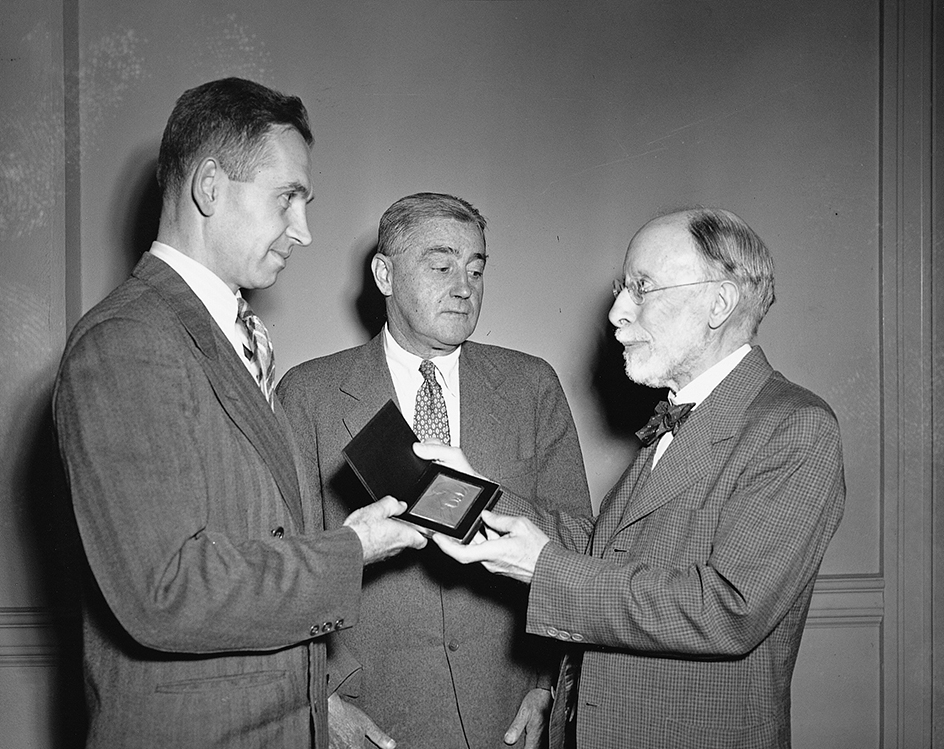Mayr, Ernst (1904-2005), a German-born American biologist, made influential contributions to the study of evolution. He helped develop the synthetic theory of evolution. This theory synthesizes (combines) evolution theory with genetics and other sciences.

Mayr defined a biological species as a group of living things that breed only with one another. Using this definition, he developed theories for how species evolve (gradually change). Mayr argued that a new species may evolve when a few members of a species become physically isolated from the rest of that species. The isolated population has a specific pool of genes, the biochemical substances that carry traits from one generation to the next. Genetic mutation and other factors may cause the isolated group to develop new characteristics and form a distinct species over many generations. According to Mayr, the creation of geographic barriers is the most common way in which a group becomes isolated. Mayr called this phenomenon peripatric speciation.
Ernst Walter Mayr was born on July 5, 1904, in Kempten, Germany. In 1926, he received a doctorate in zoology from the University of Berlin. He moved to the United States in 1931 and became a U.S. citizen in 1932. Mayr served as a curator at the American Museum of Natural History and a professor at Harvard University. He wrote several books on the history of evolutionary theory, including The Growth of Biological Thought (1982). Mayr died on Feb. 3, 2005, at the age of 100.
See also Evolution (History of the theory of evolution) .
